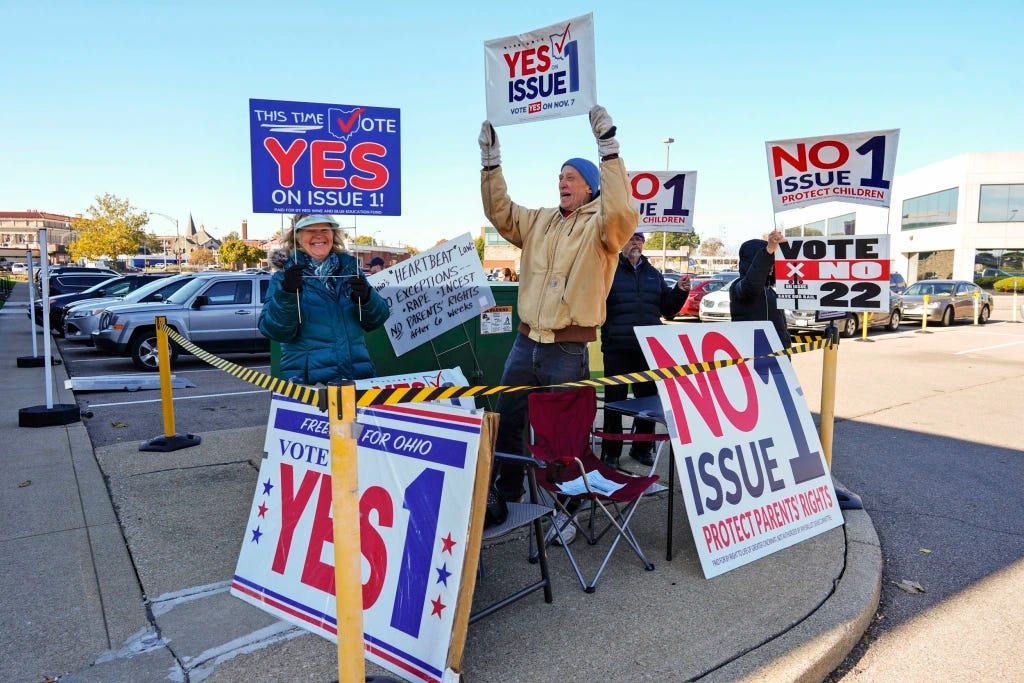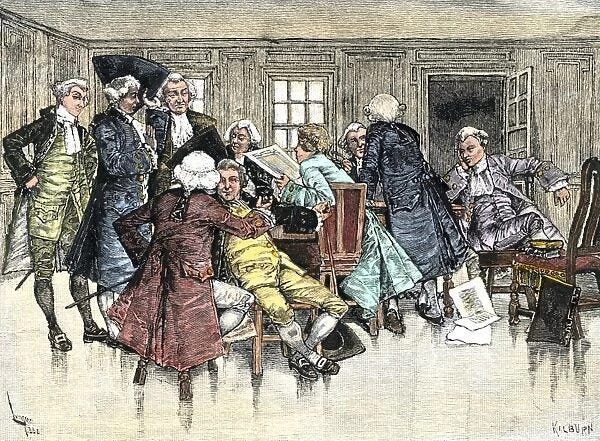Should We Be Voting On This?
What I think about ballot initiatives.
Here’s a question I have been thinking about lately, and I’d love to hear your thoughts in the comments. Being able to speak with thoughtful people engaging in good faith discussions is important.
Should social issues be on the ballot?
I’ve been pondering this as more than six states have added ballot initiatives to their November elections, including Missouri and Arizona, who recently crossed the threshold to add abortion questions.
Let me give you the pros and cons as I see them – tell me if I should add something to this list.
Pros:
– Gives voters a chance to make their voices heard in ways that representative democracy often does not. Voters can see the direct impact of their ballot.
– Allows for geographic diversity in viewpoints. Some things are really important to states that have specific industries (like farming, mining, auto manufacturing, etc) that wouldn’t matter as much in other places.
– Takes the power away from special interest groups and deep pocket donors and gives it back to the people.
– Increases voter turnout.
Cons:
– Is it right to be voting on what many people view as civil rights issues? Time and time again, when voters in the South had the opportunity to choose to uphold segregation laws, they did.
- Should we be giving voters the opportunity to demonstrate bigotry, restrict the voting rights of others, etc?
– How do we decide what gets put on the ballot? So you’re saying that if the KKK did the work and got enough signatures we could create racially discriminatory policies because, “direct democracy?”
Ballot initiatives are not new, by the way. They’ve been around in the US since the 1600s.
In New England, local issues were brought up at town meetings and voted on… by white men, of course.
In 1775, Thomas Jefferson proposed adding the concept of “legislative referendum” to Virginia’s state constitution. It didn’t happen then, but in the late 19th and early 20th centuries, states began voting on allowing referendums to be placed on the ballot.
Currently, 26 states allow for referendums and ballot initiatives. South Dakota was the first state to approve it in 1898.
Since then, voters have directly voted on thousands of issues put before them on the ballot, ranging from protecting worker’s rights, to term limits for elected officials, to gambling.
Let’s discuss: Should social issues be on the ballot?
I don’t work for a corporate news organization, nor do I have investors. This publication is entirely supported by people like you. If you enjoyed this, hitting the subscribe button is a great way to show you care.





In Ohio we are held hostage by our state legislature being controlled by the GOP. Without ballot initiatives we would be at their mercy.
A good example is the abortion rights law. When citizens began gathering the signatures to bring the issue to the voters for a state constitutional amendment to protect abortion the GOP saw that they were going to lose control of the issue and the trigger law that went into effect and all but banned it was in danger.
Our state legislators had said no more special elections would be held due to costs but when the abortion rights supporters had gotten the signatures necessary, they suddenly held a special election to severely restrict citizens initiatives for amendments to try to keep the abortion rights amendment from being put before voters from qualifying.
The special election to block those initiatives thankfully failed but our state secretary Frank LaRose wants to try again to change the ability of citizens in our state to bring amendments to our state constitution through citizen ballot initiatives.
The citizens initiative resulted in abortion being protected by our state constitution. There are still battles being fought to water down what was passed (by GOP lawmakers in our state).
While I believe abortion is wrong due to my faith, and when faced with pregnancy at 15 I gave the baby up for adoption, I do not believe it is okay for me to impose that on another woman who does not share my faith and walks a path I don’t know or has struggles that make that her only choice.
I believe these are important to have so citizens have a voice rather than having representatives who only care about party power from deciding such issues.
Yes because right now our political system is so broken that we the people have no voice. With excessive amounts of money in our political system, as well as gerrymandering our elected officials are no longer able or willing to do what their constituents want.